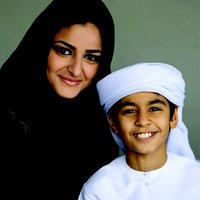by Denise Nanni and Milena Rampoldi, ProMosaik. In this interview we would like to invite you to visit the World of Mentor Arabia, an organisation whose vision consists of empowering Arabic children and young people to make them able to decide for their future. And they should be capable of opposing to drugs and risky behaviour. The organisation works in Lebanon and works in different countries of the Arabic world. Would like to thank Aline for the detailled answers to our questions.
What are the main risk factors among young people in the Arab world and at which age young people are more likely to be at risk of drug abuse?
The drug phenomenon can reach any person, especially those who are more vulnerable and who lack the appropriate support systems that would enable them to make healthy choices. The main risk factors include lack of education, wars and conflicts, unemployment and lack of self-confidence and emotional stability among young people. Drug use and abuse are public health problems that could affect anyone regardless of age, gender, ethnicity, religious affiliation or socioeconomic class. Younger people, especially teenagers, and those who lack access to education are considered more vulnerable to using drugs.
How has the civil society been responsive to your initiatives so far?
Mentor Arabia faces a monumental task in trying to halt the spread of this fast growing and deadly phenomenon in the Arab region. This task cannot be achieved alone; it requires the help and cooperation of various parties, such as governmental and non-governmental institutions, experts, educators, parents, religious leaders, businesses, media and many more.
Civil society has been positively responsive to our initiatives in all the Arab countries that we cover. This responsiveness varies from full partnership, to national ownership of our programs, and to complementing each other’s role be it prevention or rehabilitation and protection.
Additionally, the involvement of all segments of the community and the provision of safe and secure environments for our children and youth are vital to the success of any strategy or initiative.
How can art contribute to drug abuse prevention?
Substance abuse is the leading public health crisis sweeping across college campuses. The purpose of encouraging art work is to contribute to the concept that creativity and artistic expression can play a significant role both in raising awareness of the personal and community tolls caused by substance abuse, and addiction. Thus spreading a movement of prevention across the society.
Art is a means that allows self-expression and serve as a platform for young people to express their perception of the problem and solution.
Artwork can give insights into the human experience, can spark dialogs, can teach, and can change perceptions.
According to your experience, what are the most effective ways in order to prevent risky behavior?
We envision a drug-free Arab world where children and youth are given the opportunities to lead healthy lives. Mentor Arabia’s role is to empower youth to make healthy choices and resist drugs.
Research and best practices have shown that utilizing the“Life Skills” approach is vital in drug use prevention, and our work has been centered around empowering youth through the development of their life skills as a primary means of prevention of risky behaviors. Furthermore, the role of parents and teachers is essential, not only because they are crucial members of a young person’s support network, but also since they represent the entry points formany prevention programs, them being in the home and at school. The work of parents and teachers and the community at large is seen as complimentary to that of enforcement and control.
Empowering children and youth by developing their life skills and capacities, thus boosting their self-esteem makes them less vulnerable to use drugs in the future or to adopt risky behaviors. We believe that adopting best practices that are evidence-based and proven to be successful in other parts of the world, in addition to emphasizing collective work and partnerships, and monitoring and evaluating programs to assess impact, documenting lessons learned and disseminating knowledge are all key in effective prevention programs.
The fight against drugs is a long and extremely difficult one. There is so much that needs to be done and we must all get together and work together. Through solid and collaborative partnerships with government and civil institutions, and by working closely on ground with parents, educators, children, youth, and with the support of the media, we can repel the spread of the drug phenomenon in the Arab world. It will take time, but if we work together, hand in hand, we will succeed in protecting our children and youth and in developing our communities.
Do you cooperate with any local authority and institution? If yes, how?
One of Mentor Arabia’s principle missions is to build the capacity of national organizations, whether private, governmental, or non-governmental, to adopt and carry out drug prevention programs at the national level. Instead of perpetuating dependencies, Mentor Arabia works to capacitate institutions and create sustainability in drug prevention by forging strong partnerships with solid and active national entities on the ground that can own the programs at the national level in the future.
https://promosaik.blogspot.it/2016/12/mentor-arabia-empower-young-people-to.html












